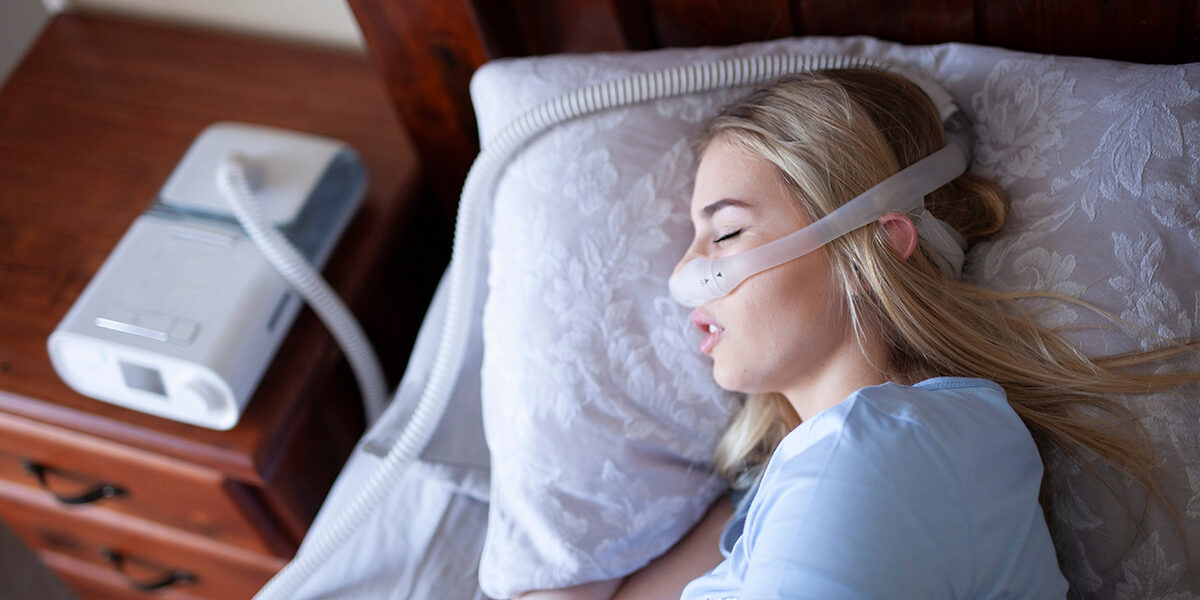Continuous Positive Airway Pressure (CPAP) machines are a lifesaver for more than 8 million sleep apnea sufferers in the United States. However, Dutch manufacturer Philips voluntarily recalled three to four million CPAP units on June 14th, 2021, because the foam off-gassing may put users at risk of developing cancer. Contact our law firm to start building your Philips CPAP case now.
What are the Side Effects of Philips CPAP Medical Devices?
Patients and their doctors contacted Philips after experiencing a number of adverse health effects. For years, users have noticed the presence of black debris within the airpath circuit. The company identified a defect in the machine’s polyester-based polyurethane (PE-SUR) sound abatement foam. It degrades when exposed to high heat and humidity or is cleaned improperly with ozone products. The degrading foam releases a toxic gas that may be harmful when inhaled.
According to Philips, no deaths are associated with the machines, but they have received complaints regarding:
- Asthma
- Breathing difficulty
- Chest pressure
- Cough
- Headache
- Hypersensitivity
- Irritation of the skin, eyes, and respiratory tract
- Inflammation
- Kidney and liver effects
- Nausea
- Sinus Infection
- Toxic carcinogenic effects
- Vomiting
What Machines Are Affected by This Recall?
The Philips CPAP machine recall includes nearly all CPAP, APAP, and BiPAP machines sold from 2009 until today, except the DreamStation 2.
Recalled products include:
Continuous Ventilators
- The E30
- Trilogy 100 and 200
- Garbin Plus, Aeris, LifeVent Ventilator
- DreamStation ASV and ST
- SystemOne ASV4
- C Series ASV, S/T, AVAPS
- OmniLab Advanced Plus In-Lab Titration Device
- A-Series BiPAP V30 Auto Ventilator
Non-Continuous Ventilators
- SystemOne Q Series
- DreamStation CPAP, Auto CPAP, and BiPAP
- DreamStation Go CPAP and APAP
- Dorma 400 and 500 CPAPs
- REMstar SE Auto CPAP
What Should Philips CPAP Users Do?
The company said it is currently working with regulatory agencies to devise updated instructions for the repair and replacement of affected devices. Philips Respironics Chief Executive Frans van Houten has said the process would likely take a year.
In the meantime, they advised patients to consult with their doctors to determine the best course of treatment. Philips Respironics suggests patients replace devices that are greater than five years old, as this is the normal lifespan for ventilation devices.
Should You File a Philips CPAP Lawsuit?
We invite you to contact Showard Law Firm of Tucson, AZ, for a free consultation. Medical device manufacturers are held to a high standard to design safe products and to warn consumers of all known risks. Failure to do so is considered a serious breach that may be pursued through the court system.
The first 10 lawsuits were filed in Massachusetts on June 17th, alleging that Philips failed to disclose the defect as soon as company officials knew about it.
Contact Us at Showard Law Firm for a Free Consultation
If you or a loved one have suffered health complications related to a Philips CPAP machine medical device, you may be entitled to compensation to cover the cost of medical bills, ongoing treatments, lost wages, and diminished enjoyment in life. We only charge a legal fee upon the successful resolution of your case, so be sure to contact our law firm to start building a strong case right away.








